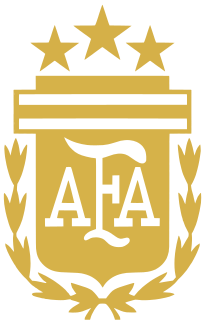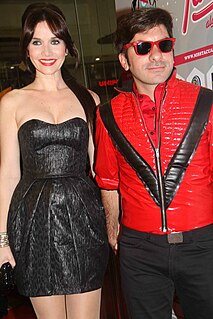Related Research Articles

South America is a continent entirely in the Western Hemisphere and mostly in the Southern Hemisphere, with a relatively small portion in the Northern Hemisphere. It can also be described as the southern subregion of a single continent called America.

The economy of Uruguay features an export-oriented agricultural sector and a well-educated workforce, along with high levels of social spending. Tourism and banking are also important sectors; Uruguay acts as a regional hub for international finance and tourism. The country also has a history and representation of advanced workers-rights protection, with unions and the eight-hour work-day protected at the beginning of the 20th century.

Bolivia traditionally has maintained normal diplomatic relations with all hemispheric states except Chile. Foreign relations are handled by the Ministry of Foreign Affairs, headed by the Chancellor of Bolivia, Fernando Huanacuni Mamani, the successor of David Choquehuanca Céspedes.
The Copa América or CONMEBOL Copa América, known until 1975 as the South American Football Championship, is the top men's football tournament contested among national teams from South America. It is the oldest still-running continental football competition, as well as the third most watched in the world. The competition determines the champions of South America. Since the 1990s, teams from North America and Asia have also been invited to compete.

The Argentina national football team represents Argentina in men's international football and is administered by the Argentine Football Association, the governing body for football in Argentina. Argentina's home stadium is Estadio Monumental Antonio Vespucio Liberti in Buenos Aires.

The Bolivia national football team, also known as La Verde, has represented Bolivia in international football since 1926. Organized by the Bolivian Football Federation (FBF), it is one of the 10 members of FIFA's South American Football Confederation (CONMEBOL).

Carlos Sastre Candil is a former Spanish professional road bicycle racer and winner of the 2008 Tour de France. He consistently achieved outstanding results in the Vuelta a España and in the Tour de France. Sastre established himself as a strong and stable climbing specialist, and after working to improve his individual time trial skills, he became a contender for the top GC spots in the Grand Tours. In total, Sastre finished in the top ten of fifteen Grand Tours during his career, and finished on the podium of each of them. Sastre never tested positive for drugs, nor was he implicated in any doping investigation, even though he performed at the top level of cycling.

The Brazilian Athletics Confederation is the governing body for the sport of athletics in Brazil. President for the period 2013-2016 is José Antonio Martins Fernandes.

Martín Sastre is a Uruguayan film director and contemporary media artist working with film, video, sculpture, photography and drawing.

A constitutional referendum was held in Bolivia on 25 January 2009, postponed from the initially planned dates of 4 May 2008 and then 7 December 2008. Drafted by the Constituent Assembly in 2007, the new constitution was approved in the referendum according to an exit poll by Ipsos Apoyo for La Razón and ATB, a Bolivian television network. Furthermore, it required early elections to be held on 6 December 2009.
The South American zone of 2010 FIFA World Cup qualification saw ten teams competing for places in the finals in South Africa. The format is identical to that used for the previous three World Cup qualification tournaments held by CONMEBOL. Matches were scheduled so that there were always two games within a week, which was aimed at minimizing player travel time, particularly for players who were based in Europe.

Marcelo Martins Moreno, known as Marcelo Martins in Bolivia and as Marcelo Moreno in other countries, is a Bolivian professional footballer who plays as a striker for Paraguayan Primera División club Cerro Porteño and captains the Bolivia national team. He is considered one of the greatest Bolivian players of all time. With 30 goals, he is the national team's all-time top goalscorer.

Bolivia–United States relations were established in 1837 with the first ambassadorial visit from the United States to Peru–Bolivian Confederation. The Confederation dissolved in 1839, and bilateral relations did not occur until 1848 when the United States recognized Bolivia as a sovereign state and appointed John Appleton as the Chargé d'Affaires.

Cervélo TestTeam is a former professional cycling team, whose license was held in Switzerland by the cycling management company Cycling United Racing. The team's title sponsor was Cervélo, a Canadian manufacturer of bicycle frames that previously exclusively supplied CSC–Saxo Bank. They competed in 2010 as a UCI Professional Continental team, but folded after the season.
Diana, The Rose Conspiracy is a 2005 short film directed by Uruguayan media artist Martin Sastre. It depicts a day when the world discovers that Diana, Princess of Wales, did not die in Paris and has a new undercover life in a dangerous cantegril on the outskirts of Montevideo, Uruguay. The film was shot in a real Uruguayan slum along with other parts of Montevideo. It stars a Diana impersonator, an English teacher from Sao Paulo named Denise Watson. It was selected as one of the best works by the Italian Art Critics Association at the Venice Biennale. After the first public screening the film provoked false media headlines about Diana being alive in Uruguay. This film can only be seen in museums such as the Solomon R. Guggenheim Museum in New York City, private collections and other art spaces.
The Iberoamerican Trilogy is a short film trilogy directed by Uruguayan media artist Martin Sastre between the years 2002 and 2004. The films are about a future period of human civilization defined as the Iberoamerican Era when Latin America becomes the central cultural power of the World after Hollywood collapsed, until the rising of Bolivia as a confederation, taking all the Americas as its own territory.
The history of the Peru national football team dates back to the late 19th century, when English sailors and Peruvian travelers returning from England introduced the sport into Peru. It would take the early 20th century, in the year 1927, for Peru to finally create their first official national football team.

The Copa América Centenario was an international men's association football tournament that was hosted by the United States in 2016. The competition was a celebration of the centenary of CONMEBOL and the Copa América, and was the first Copa América hosted outside South America.
References
- ↑ "Bolivia Fetiche". El Deber. 17 February 2008. Archived from the original on 28 May 2008. Retrieved 2009-02-06.
- ↑ "¿LADY DI VIVE EN URUGUAY?". peru.com. 3 April 2007. Archived from the original on 14 September 2007. Retrieved 2009-02-06.